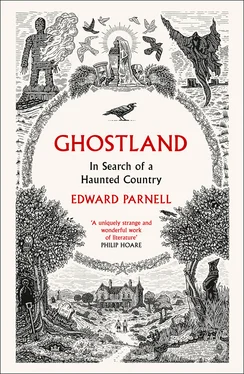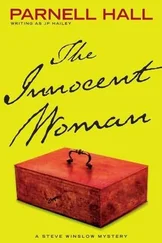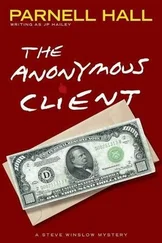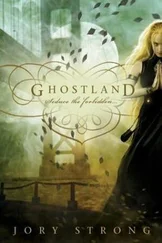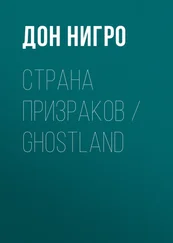Waterland swirls between earlier days and the present, between the personal family dramas of the Crick and Atkinson families, and of the shifting silts of greater events such as the Napoleonic or First World Wars, whose eventual settling has a future effect on the imprecise borderlands of the far-off Fens. And, in a nod to Melville’s Moby-Dick , there is even an eight-page digression into the slippery natural history of the European eel, a species my grandfather, a keen angler, was well acquainted with.
I read the novel aged sixteen, a year or two after my brother had first turned its pages. It’s testament to the book’s power that my father, who usually distracted himself with the crime novels of Ed McBain or the thrillers of Frederick Forsyth (who he recalled meeting when they both worked in King’s Lynn at the end of the 1950s), and my grandfather – more comfortable with the westerns of Louis L’Amour – both seemed to take to it. For me, I think (and probably for them too), Waterland ’s initial magic came from its setting; although its events largely occurred in a time well before I was born and in a skewed version of a place some twenty miles distant, it was still a landscape I felt I knew – and a landscape I’d never seen depicted in fiction before.
The key attraction, however, was that the Cricks were lock-keepers. Because Grandad had been one too, looking after the antiquated sluices at the confluence of the Welland and the Glen, and at the terminus of the Vernatt’s Drain. In common with the Cricks of the novel, Nan and Grandad lived in a riverside cottage that came with the job. It too was a fairy-tale dwelling of sorts, located in a place whose own name was something of a misnomer: Surfleet Reservoir (though Seas End on maps), the latter word referring to the ultimately failed eighteenth-century plan to divert river water into an artificial lake to aid the drainage of local farmland. My grandparents’ post-war brick bungalow, a veritable palace among the nearby wooden holiday chalets and ramshackle fishermen’s huts that lined the Glen, was where my mother spent her teenage years before she left to marry my father beneath the leaning steeple of the main village’s church, moving six miles upriver to the house where I grew up. ‘The Res’ (as locals still refer to it) was an odd enclave populated by weekenders who moored their boats on the seaward side of the sluice – a deep tidal channel fringed by tall reeds – from where they would head out for a spot of sea fishing, or others who preferred to spend the summer sitting outside their chalets chatting to their neighbours while their children played in the river. By all accounts the place had a distinct sense of community back then, and even today has a different feel to the rest of the uniform, arable-dominated area – bringing to mind some timeless Dutch canal-side idyll.
My grandparents departed this watery haven on Grandad’s retirement, moving to a ground-floor 1970s council flat in nearby Spalding fitted with wide doorways, a high-seated toilet, and red pull-cords that would summon the local old people’s warden in an emergency. The freedom of the lock-side home I cannot remember the inside of (I would have been two when they left it) was exchanged for more practical – but more humdrum – disabled-friendly accommodation that could better cope with Nan’s ongoing, crippling physical deterioration from rheumatoid arthritis.† As her condition worsened she developed a complete reliance on my grandfather who, in a strange role reversal for a man born in 1909, became her chief carer and cook, lugging her into her wheelchair to transport her to the bathroom and bedroom. Occasionally, the pair of them would argue with a causticity that now, I think, was borne out of Grandad’s frustrated inability to improve the situation. But, at other times, there was a tenderness in the way he gently pipetted artificial tears into her desert-dry eyes.
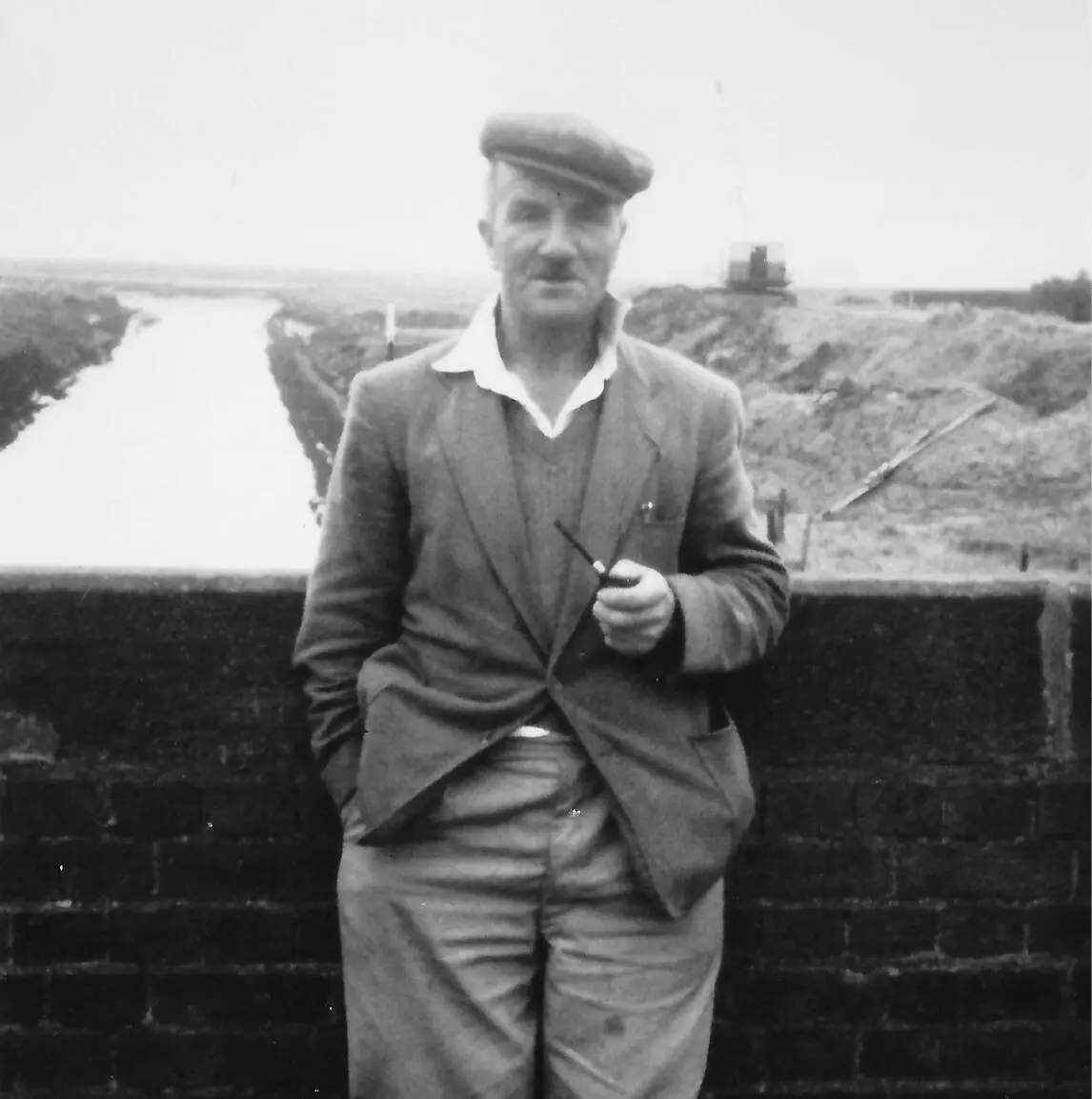
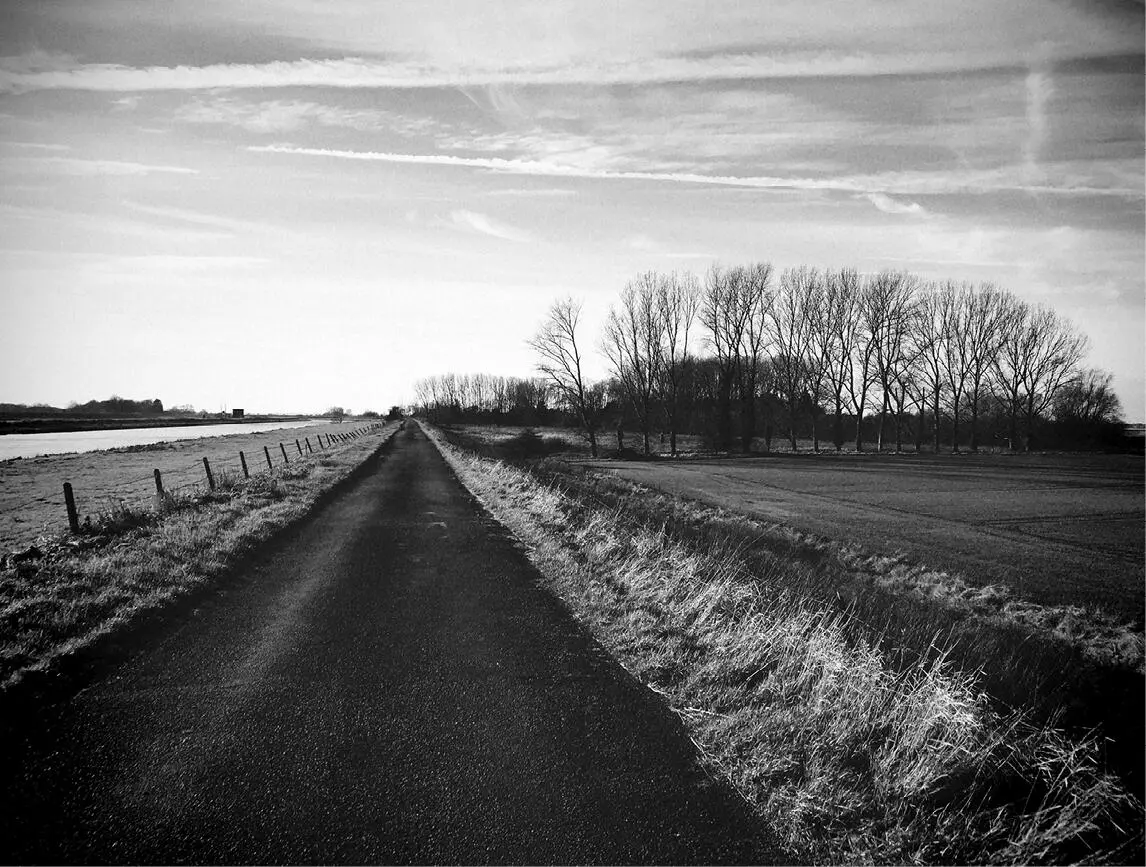
I follow the familiar route that hugs the river and leads away from my home town – I can still recall every curve even after all this time. This was the way I would ask my parents to come if we were returning from Peterborough of an evening, in the hope I’d spot an owl sitting on one of the fence posts strung along the bottom of Deeping High Bank. Sometimes Mum would pick me up from school and drive Grandad and me at dusk over the undulating road, while we watched through the windows for the silent-winged birds. In my formative years I claimed a kind of ownership of the place, mistakenly believing it was named ‘Deeping Our Bank’ – for the hours we spent here, it might as well have been.
On the face of it there’s not much to get excited about: the first stretch skirts a grass-covered strip to the left and wide fields of crops to the right, while a barbed-wire fence borders the roadside ditch. Today it’s empty, but over the years various birds of interest alighted here before us: a pair of stonechats, neat little passerines, usually took up winter residence; once, a russet-barred sparrowhawk gripped a bloodied linnet in his talons; and in spring, Pinocchio-billed snipe crouched on the wooden posts in full view, their cryptic brown plumage offering no camouflage against the green of the backdrop. But the highlight was the ghost-lit barn owls that fluttered ethereally in our headlights, or materialised, seemingly from nowhere, in the late afternoon sunshine.
Always you wanted owls.
Past where the road jinks to the left and twists up the bank, bringing the river into view, is a pale-bricked barn that looked out of place, like some Spanish mission picked up and transposed to the middle of this flatness. Just beyond, tucked behind the bank, is a pond. We rarely saw anything on it – except once, when Mum braved treacherous snow on one of the fabled occasions when school was closed to drive the two of us along the track. The river was frozen solid, but not the pit: a redhead female smew, a small, toothed diving duck from the continent, had found the last ice-free stretch in the vicinity.
That day sits in my memory like one of my favourite childhood books, Susan Cooper’s The Dark is Rising – the second (and arguably best) in the five-title series of the same name. The 1973 children’s novel followed eight years after the Cornwall-set Over Sea, Under Stone and, in truth, feels very different and aimed at an older audience (Cooper had not originally planned on it being part of a series). It dispenses with the child leads from the opening book (though they feature again later), retaining only the wizard Merriman – King Arthur’s Merlin. What we do get in The Dark is Rising , however, is the arrival of eleven-year-old Will Stanton, soon to discover that he’s the last of the Old Ones, on the side of the Light and tasked with keeping the forces of Dark at bay in a Manichaean struggle. It is a book I loved when I first read it (I would have been a similar age to its central character), especially its depiction of the longed-for snowy Christmas that renders its time-shifting Thames Valley setting into a magical, albeit malevolent, wilderness. It’s a remarkable evocation of the wintry English countryside (reminiscent of the snow in The Children of Green Knowe ), particularly when you learn that Cooper left England for Massachusetts in 1963 with her American husband, writing all but the first of the sequence in either New England or the couple’s house in the British Virgin Islands:
Читать дальше
